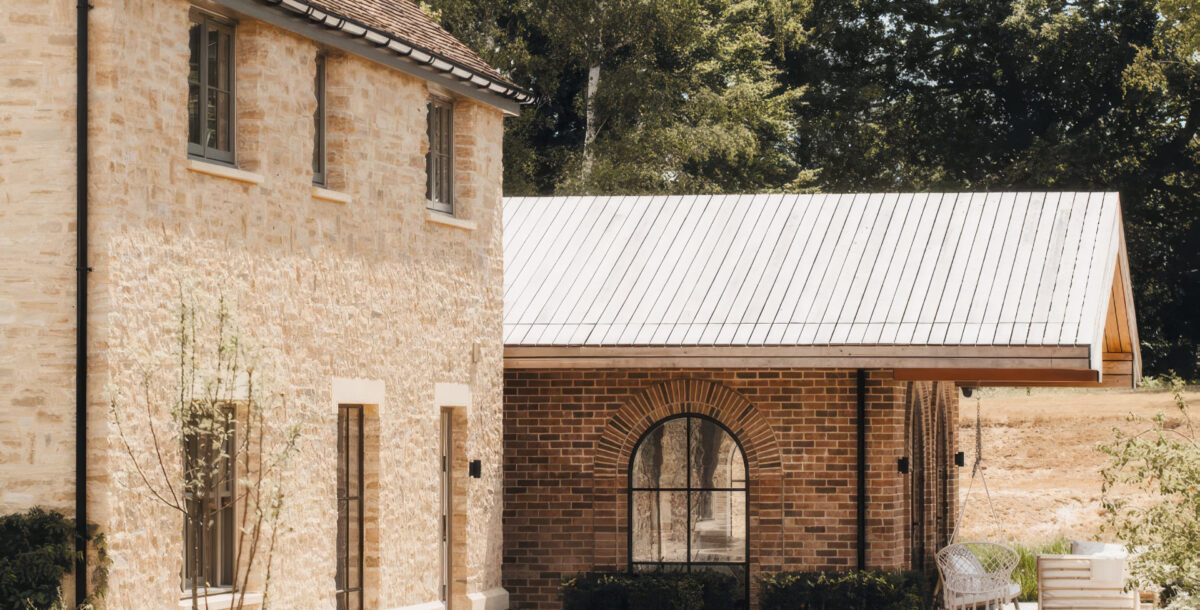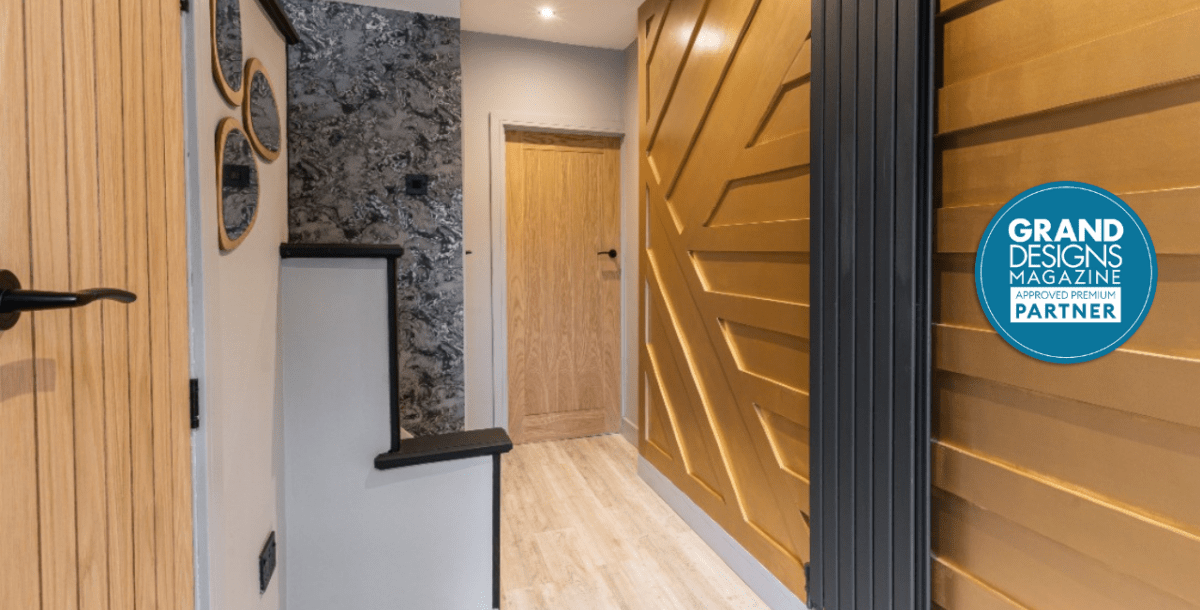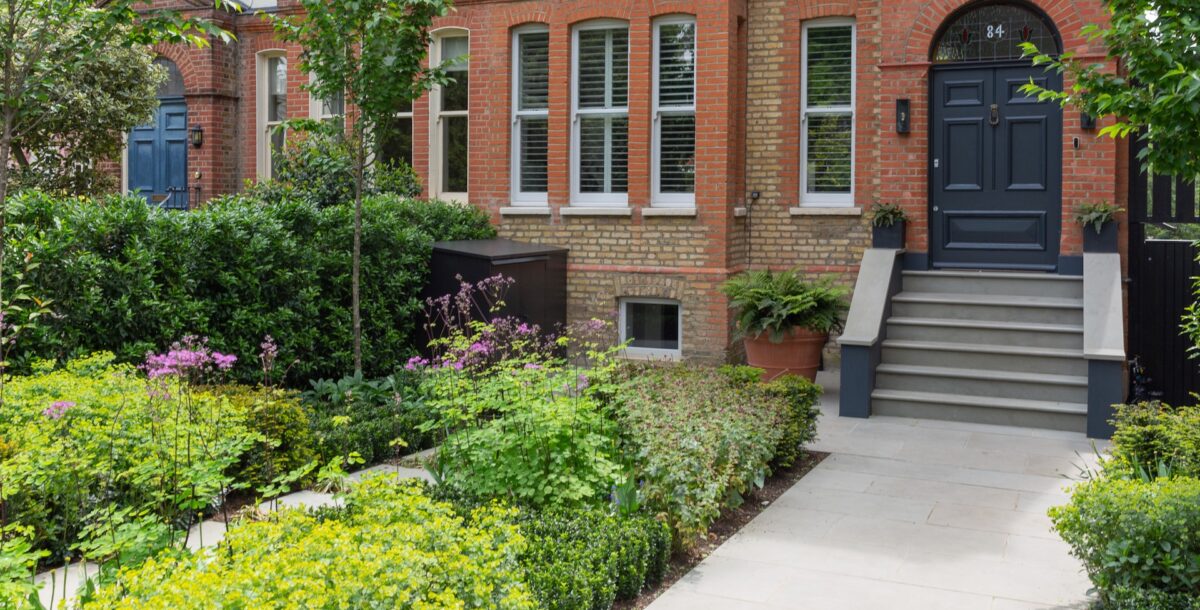Quantity surveyors guide: the key to preventing ‘inevitable’ Grand Designs budget overspends?
All about quantity surveyors: we explain what a QS does, and why they might just be the self-builder's best friend
Picture the scene, Kevin McCloud mutters to himself, as another Grand Designs project busts its budget: “They shoulda gone to a QS.” It’s an imagined scenario, but Kevin did, in fact, express exactly that sentiment when he was interviewed for the TV podcast Series Linked (series 2, episode 3). Kevin admitted: “The biggest thing I have learned [from being on the show] is that no one listens to me.
“I only recently figured out why everyone goes over budget… I spoke to a friend of mine and he said: ‘No, they don’t go over budget. They don’t have a budget! How many of them employ quantity surveyors at the beginning? How many of them actually have [their build] correctly costed?’ And the answer is almost none. Those that do tend to come in against the budget that the quantity surveyor says.”
It’s advice Kevin has shared with us before, so we set out to find out more about what quantity surveyors (QSs) do, and how they can help self-builders.
What does a QS do?
QSs are responsible for calculating and managing the costs of all aspects of a construction project. They have expert knowledge of building materials, building trades and contracts, and access to costing databases such as the Building Cost Information Service. They will also negotiate and project manage on a client’s behalf if contracted.
Early on, a QS will draw up a bill of quantities for a project, in which all the build elements are broken down and itemised so they can be put out to contract to the building trades. If you pay them to, they will manage the whole tendering process: putting the work out to tender; reviewing bids; selecting and negotiating with contractors; drawing up contracts; managing the work; troubleshooting any issues that arise; and paying suppliers. When it comes to materials, QSs know the market, going rates, and the reputation of suppliers, so a good QS should get you a good price. And, if costs for one aspect of the build are unexpectedly high for some reason, the QS can help you work out where else cost savings could be made while keeping sight of your vision for the project.
Do you have to employ a QS?
There is no legal duty to employ a QS. A small extension should be managed easily enough without QS input. But on a project of any size – including most self-builds and even complex renovations of historic buildings – it would likely be a false economy not to employ a QS. At the very least, you could engage one to look at the certain key, high-stakes aspects of the build, such as groundworks.
What info do they need?
It’s essential to give your QS as much information as possible upfront, including plans, drawings, surveys and site investigations. If some elements of the build remain to be decided, the QS can allocate a provisional cost to these elements.
How much will a QS charge?
Typically a QS will charge between a half and two percent of project value, depending on their expertise and the complexity of the build. This might sound like a lot, but chances are, they will save you that amount several times over. You can also pay a fixed fee for a specific piece of work. Remember, a big build may need input from other types of surveyors, too, such as a land surveyor or party-wall surveyor.
QS vs estimator
It’s arguable that the upfront costings most Grand Designers need could be provided equally well by an estimator. Estimators are building-trade professionals who do some of the same things that QSs do: studying plans and working out detailed materials and labour costs. Estimators are typically only involved at the beginning of a project, and won’t usually provide project-management expertise, although they might manage some subcontractors and get involved in negotiating, depending on the details of the project and their specific role.
QS vs structural engineer
The quantity surveyor and structural engineer, on the other hand, have very different roles. It’s the structural engineer’s job to make sure that a building is designed and built safe.
What about online estimation services?
There’s a whole range of online construction estimation tools that will give you a very rough estimate of project costs for a few hundred pounds. These work well for the simplest of projects and for an initial feasibility quote. For anything more complex, human experience and judgement count.
Why use a QS?
Justin Sullivan, Royal Institute of Chartered Surveyors (RICS) Senior Vice President, puts it like this: “Quantity surveyors’ expertise can help people set a realistic budget from the start, both for their project as a whole and for different elements of it.
“We can also help throughout a project, such as with tendering and contracting tradespeople, or with managing any issues that arise. We can even provide estimates of running costs for a design, helping people budget beyond the build. The biggest benefit may be avoiding stress: we minimise the unknowns, leaving less room for over-optimistic expectations, cost and time overruns or contract disputes.”
Simon Collin, DipSurv, MRICS, Director at Addison Hunt, a firm of quantity surveying specialists working all over the country and headquartered in Loughborough, expands on this: “Employing a QS at the inception of a project like those on Grand Designs is a proactive approach to avoiding budget overruns and potential disasters. Our ability to establish a solid budget, manage project finances, oversee procurement, advise on skilled on-site project management, and ensure an efficient construction programme will make a substantial difference, particularly to domestic customers.
“First and foremost, a QS plays a pivotal role in establishing a robust budget and maintaining control over it throughout the project’s lifecycle. We accurately assess the specific risks and potential shortfalls in package scope, allowing for creating a more realistic and comprehensive budget. We ensure the procurement of packages is handled diligently, making certain that contractors tendering for work fully understand the scope of each package and the basis of delivery and installation.
“Crucially, we address the aspect of project management, which many projects such as the type shown on Grand Designs suffer from when (inadequate) on-site project management is done by the customer despite them having no construction knowledge. People often don’t recognise the importance of a QS until it’s too late and the budget is already in jeopardy. It’s important to remember that we serve as advocates for our clients, ultimately safeguarding against costly surprises and financial shortfalls.’
Find a QS
You can find QSs listed amongst the RICS’s members. Increasingly, people are listing themselves as QSs on work platforms like Upwork. But, whoever you use, you need to see references, projects they have worked on, and evidence of their qualifications and indemnity insurance. A recommendation from your architect or someone else who has used a QS is probably the best way to find someone suitable.









